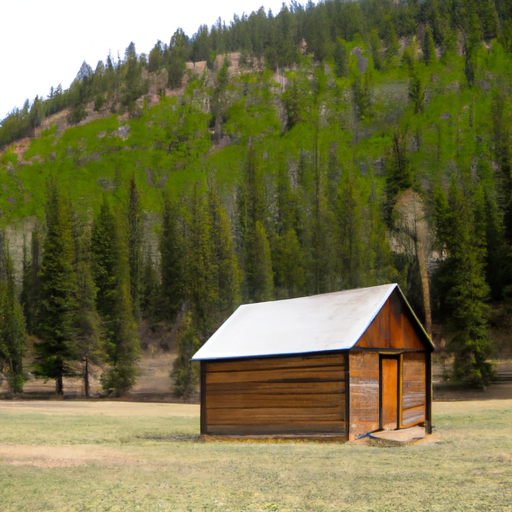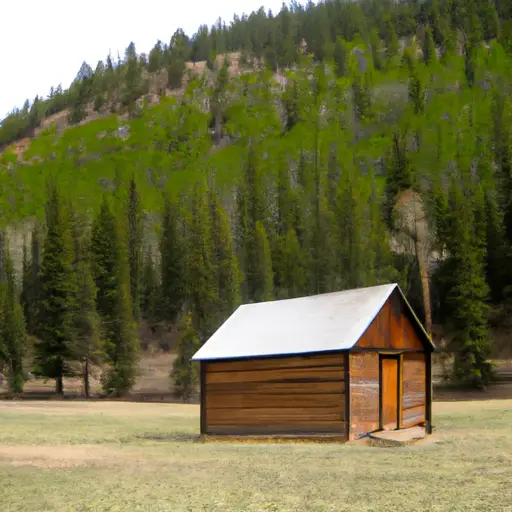Ever wondered why some individuals choose to live off the grid? You know, those people who decide to disconnect from the mainstream society and live a self-sustaining lifestyle? Well, it’s a fascinating topic and one that often sparks curiosity. So, let’s delve into the reasons why some people make the conscious choice to live off the grid.
First and foremost, living off the grid allows individuals to have greater control over their lives. By relying on renewable energy sources and producing their own food, they become more self-sufficient and less dependent on the systems that most of us rely on daily. This sense of autonomy can be empowering and liberating, as they are no longer tied down by societal norms and expectations.
Another reason why some people choose to live off the grid is the desire for a simpler and more sustainable lifestyle. By disconnecting from the hustle and bustle of modern life, they can focus on the things that truly matter to them, such as spending time with loved ones, pursuing hobbies, and connecting with nature. Additionally, living off the grid often involves reducing one’s carbon footprint, which appeals to individuals who are passionate about environmental conservation.
Intrigued? This is just a glimpse into the world of those who choose to live off the grid. In our upcoming article, we’ll delve deeper into the challenges and rewards of this lifestyle choice. Whether you’re considering going off the grid yourself or simply curious about this unique way of living, stay tuned to learn more! There are various reasons why individuals choose to live off the grid, away from the conveniences of modern society. This alternative lifestyle choice allows them to break away from conventional norms and embrace a more self-sufficient and sustainable way of living. By disconnecting from the grid, they aim to reduce their environmental impact, escape the pressures of modern society, and seek freedom, independence, and a deeper connection with nature. In this article, we will explore the reasons behind this intentional lifestyle and the benefits it provides.

Alternative Lifestyle Choice
Living off the grid is more than just a way to live; it is an alternative lifestyle choice that challenges conventional norms and values. By opting for a simple and minimalist existence, individuals choose to prioritize environmental ethics over material possessions. They embrace the idea of sustainability and strive to live in harmony with nature.
Desire for Self-Sufficiency
One of the primary motivations for living off the grid is the desire for self-sufficiency. By taking control of their basic needs, individuals are able to rely less on external resources and become more self-reliant. They grow their own food, raise livestock, and even harness renewable energy sources like solar or wind power. This level of independence allows them to break free from the constraints of modern society and take charge of their own lives.

Environmental Impact
Living off the grid significantly reduces one’s environmental impact. By disconnecting from public utilities and relying on renewable energy sources, individuals can greatly reduce their carbon footprint. They also strive to conserve natural resources, minimize pollution and waste, and preserve biodiversity. Living in harmony with the natural world allows them to appreciate and protect the beauty of wilderness.
Escape from Modern Society
Escaping the pressures and expectations of modern society is another driving force behind the decision to live off the grid. By avoiding consumerism and materialism, individuals reject the idea that personal worth is measured by possessions. They critique social structures and expectations and seek simplicity and serenity in their lives. This choice enables them to prioritize what truly matters to them and find contentment in a more minimalist lifestyle.
Reducing Dependence on Infrastructure
Living off the grid also reduces dependence on external infrastructure and services. By being less reliant on utilities and public services, individuals can avoid energy blackouts, water shortages, and other infrastructure failures. This level of independence allows them to remain self-sufficient even during crisis situations and adapt to unpredictable circumstances more effectively.
Seeking Freedom and Independence
Choosing to live off the grid is often motivated by the desire for freedom and independence. By disconnecting from the norms and expectations of society, individuals can have more control over their time and activities. They can escape the pressures of conforming to societal norms and expectations and embrace a more flexible lifestyle. Living off the grid provides them with the opportunity to live life on their own terms.
Connecting with Nature
Living off the grid offers individuals the chance to connect deeply with the natural world. By immersing themselves in the beauty of wilderness and cultivating a deep connection with the Earth, they seek solace and tranquility. This connection allows them to appreciate the wonders of nature and develop a sense of responsibility towards protecting the environment.
Escaping Financial Constraints
Living off the grid can also be a way to escape financial constraints. By reducing living expenses and avoiding debts and financial obligations, individuals can focus on non-monetary forms of wealth. They embrace a more frugal lifestyle and prioritize experiences and relationships over material possessions. This financial freedom provides them with a sense of liberation and allows them to live a simpler and more fulfilling life.
In conclusion, the choice to live off the grid is a deeply personal one, driven by a multitude of motivations. From the desire for self-sufficiency and a reduced environmental impact to the longing for freedom, independence, and a deeper connection with nature, individuals who choose this lifestyle find unique opportunities to live life on their own terms. Exploring the reasons behind this intentional lifestyle helps foster understanding and appreciation for those who have taken this path. However, it is important to note that living off the grid requires careful reflection and planning. It is not an easy choice and should not be taken lightly. Nonetheless, for those who embark on this journey, the benefits and rewards of living off the grid are immeasurable.




